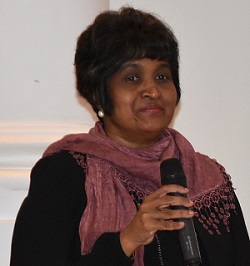Developing constitutional culture in the context of constitutional implementation
This theme examined the implications of constitutional culture for the implementation of new constitutional arrangements that represent significant change.

As with the previous theme, it assumes that constitutional culture encompasses the values, traditions, material factors and emotional attachments that shape how institutions, elites, officials and the people themselves engage with the constitution. Unlike the previous theme however, it asks whether constitutional culture needs to change, after adoption of a new or amended constitution, and, if so, how much change can be encouraged.
This theme makes a contribution to the broader challenge of implementing new constitutional arrangements. The assumptions on which it rests are that implementation requires more than technical compliance with the new constitutional arrangements, and may also require deeper attitudinal shifts, defined here in terms of constitutional culture. The nature and magnitude of this task varies with the substantive changes made and the extent to which there already is an underlying culture of constitutionalism, in the sense of compliance with the constitution.

Five case studies were presented, from Bhutan, Maldives, Nepal, Papua New Guinea and Malaysia. They explored the following questions:
- What changes were introduced by the Constitution that required the development of a new constitutional culture or adaptation of an existing culture?
- What kind of changes need to occur in key sectors of society? Consider, for example, the public, civil society, the media, executive government, administrative agencies, legislatures, courts, constituent units, other?
- What proactive measures, if any, were taken to develop or adapt official and/or public culture to the needs of the new Constitution, during the constitution making process or in the implementation phase?
- How effective were any such measures, in the short‐term and over time?
- What were the consequences of any failure to develop a constitutional culture to underpin implementation of the new arrangements?

- What lessons can be learnt from these experiences for other states that are implementing new constitutional arrangements.
Case studies:
- Bhutan: Tenzin
- Maldives: Mariyam Zulfa
- Nepal: Seira Tamang
- Papua New Guinea: Stephen Pokawin
- Malaysia: Dian Abdul Hamed Shah